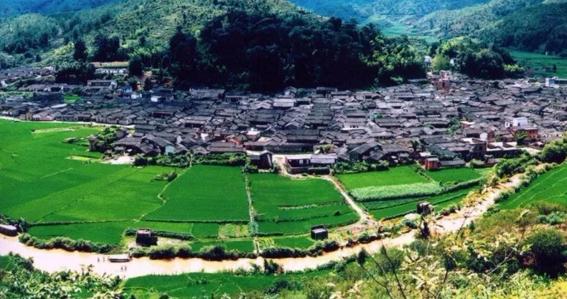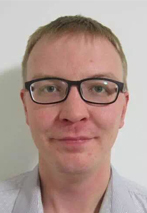當(dāng)前位置: Language Tips> 新聞播報(bào)
分享到
我注意到,那些在政府的幫助下已基本實(shí)現(xiàn)繁榮的地區(qū)仍存在一些貧困人口——他們通常疾病纏身或身患?xì)埣病O毨ё詈蟮娜蝿?wù)之一,便是為像他這樣的困難戶提供新機(jī)遇。

By Erik Nilsson
They said there was a secret behind their house.
他們說,屋子后面有一個(gè)秘密。
So, I left the couple shoveling corn into a wooden roasting barrel to investigate.
這對(duì)夫婦正忙活著將玉米塞到烤熱的木桶里,我決定獨(dú)自前去探個(gè)究竟。
It turned out to be a cave containing buried treasure — liquor.
原來這個(gè)洞穴里埋藏的珍寶是白酒。
The couple uses the cavern hidden behind their home to inter large ceramic urns in which their corn liquor ferments.
這對(duì)夫婦將大陶甕埋在屋后的洞穴里,讓玉米酒在甕中靜靜發(fā)酵。
I sniffed the finished product. It smelled … potent.
我聞了聞發(fā)酵好的酒。一股強(qiáng)烈的酒味撲面而來。
Deng Zaiquan and his wife haven’t yet relocated from Guizhou province’s underdeveloped Yikoudao village to Tongren city like most of their neighbors.
鄧再權(quán)和他的妻子沒有像大多數(shù)村民一樣,從貴州省的窮困山村一口刀村搬遷到銅仁市。
He’s concerned about getting a job, since he has an arm disability.
因一只手殘疾,他擔(dān)心在城里找不到工作。
So, they’ve spent the past four years brewing spirits to support their three children in high school in Tongren.
因此,過去四年來,他們一直靠著釀酒供三個(gè)孩子到銅仁念高中。
“Disabled people are worried there are no jobs for them in the city,” says Xiao Han, a public servant in Tongren, who assists relocated villagers to adapt to urban life.
銅仁市市委辦駐一口刀村第一書記肖涵負(fù)責(zé)幫助搬遷村民適應(yīng)城市生活,他表示,“殘疾人擔(dān)心在銅仁找不到工作。”
“There’s no specialized training for them.”
“現(xiàn)在還沒有專門針對(duì)這部分村民的培訓(xùn)。”
Deng’s family owns a 120-square-meter modern apartment in Tongren. But the couple only visits about five times a year.
鄧再權(quán)一家在銅仁擁有一間120平米的現(xiàn)代化公寓。但這對(duì)夫婦一年大約只去五回。
“I want to find a job in the city to stay with our kids,” Deng says, shoveling corn in front of his rustic house.
在自家農(nóng)舍前,他邊鏟玉米邊說,“我想在城里找個(gè)工作,和孩子們住在一起。”
The kernels flew from the blade like sparks as he spoke.
他說話時(shí),谷粒在刀片間飛舞,好像躍動(dòng)的火花。
“But most of my family’s income comes from alcohol. I can do that here.”
“但我們家大部分收入都靠釀酒。在這兒我能干活。”
They earn 40,000 yuan ($6,000) to 50,000 yuan a year selling booze.
他們每年靠賣酒能賺四五萬元。
I’ve focused on covering poverty alleviation during my 11 years in China.
待在中國(guó)的11年里,我一直在關(guān)注扶貧報(bào)道。
No society in human history has lifted so many people out of poverty so fast.
在人類歷史上,從沒有一個(gè)國(guó)家能像中國(guó)這樣,以如此快的速度讓這么多人脫離貧困。
The relocation program in Tongren and the construction of infrastructure in Guizhou serves as a microcosm for what’s happening nationwide, as China has declared it’ll eliminate extreme poverty by 2020.
中國(guó)宣布將在2020年基本消除極端貧困。而銅仁市易地扶貧搬遷工作以及貴州基礎(chǔ)設(shè)施建設(shè)正是全國(guó)各地扶貧工作的一個(gè)縮影。
Everyone knows China is a huge country with a huge population.
眾所周知,中國(guó)是一個(gè)人口眾多的大國(guó)。
But fewer people appreciate the role of geology, which has largely conspired against the 1.4 billion people who inhabit the country’s terrain.
但并非所有人都對(duì)這個(gè)國(guó)家的地貌報(bào)以感激之情,復(fù)雜的地質(zhì)情況對(duì)這片土地上的14億居民造成了很大困擾。
China is crowded not only with people but also with geological hazards.
中國(guó)不僅人口密集,且自然災(zāi)害頻發(fā)。
Its inhabitants dwell among an inordinate density of fault lines, mountains, deserts and plateaus.
其人口遍布于斷層帶、山區(qū)、荒漠和高原。
Guizhou has long remained one of China’s poorest provinces because it’s one of its most mountainous. It’s diced by karst peaks that make agriculture, industry, transportation — basically you name it — difficult to develop.
貴州是中國(guó)山地最多的省份之一,這也導(dǎo)致其長(zhǎng)期以來一直是中國(guó)的貧困大省。該省的喀斯特地貌使農(nóng)業(yè)、工業(yè)和運(yùn)輸業(yè)——幾乎所有行業(yè)——都難以發(fā)展。
The country has made great strides in overcoming such roadblocks as mountains to enhance transportation in such tricky terrains.
中國(guó)在應(yīng)對(duì)多山等路障方面已取得重大突破,極大保障了復(fù)雜地形區(qū)的交通安全。
Urban centralization in places like Tongren provides advanced, accessible public services and modern, private amenities in homes.
銅仁正在加快中心城市建設(shè),著力提供先進(jìn)便民的公共服務(wù)以及現(xiàn)代化的私人居住設(shè)施。
A growing number of programs provide job training to former farmers and herders that offer better livelihoods.
越來越多的就業(yè)培訓(xùn)項(xiàng)目開始針對(duì)農(nóng)牧民,為他們提供更好的生活。
Deng is an outlier.
鄧再權(quán)是個(gè)例外。
One of the final steps to eliminating poverty is to provide new opportunities for people like him.
消除貧困最后的任務(wù)之一,便是為像他這樣的困難戶提供新機(jī)遇。
I’ve noticed that when people remain poor in places where the government has generally brought prosperity, it’s often linked to illness or disability.
我注意到,那些在政府的幫助下已基本實(shí)現(xiàn)繁榮的地區(qū)仍存在一些貧困人口——他們通常疾病纏身或身患?xì)埣病?/p>
Deng’s family is doing OK, financially.
鄧再權(quán)一家經(jīng)濟(jì)上還勉強(qiáng)過得去。
But if he could work in the city, he could live there, too.
而若能在城市工作,他自然也會(huì)在城市生活。
And he could enjoy its advantages — including being with his kids.
如此一來,他便能享受到住在城市的許多好處,當(dāng)然包括和孩子們生活在一起。
英文來源:“CHINA DAILY”微信公眾號(hào)
翻譯:黃敏華(實(shí)習(xí))
編審:丹妮 董靜
音頻編輯:唐曉敏
更多內(nèi)容請(qǐng)關(guān)注“CHINA DAILY”微信公眾號(hào):

Broadcaster

Erik Nilsson is an American journalist who has worked in China for over 10 years. His work has won various honors, including the Chinese Government Friendship Award - the highest honor the country bestows on foreigners. He has traveled to every provincial-level jurisdiction except Chongqing and Guangdong, covering such stories as the Wenchuan and Yushu earthquakes, nomadic communities’ development and civil society.
上一篇 : 老外在中國(guó):有個(gè)會(huì)中文的女兒是什么感受
下一篇 :
分享到
關(guān)注和訂閱

口語(yǔ)
關(guān)于我們 | 聯(lián)系方式 | 招聘信息
電話:8610-84883645
傳真:8610-84883500
Email: languagetips@chinadaily.com.cn